Specializing in bio-defense and molecular immunology research on prevention of cancer, inflammation, lifestyle-related diseases, allergies, and intracellular signal transduction modification by natural products and food ingredients
Profile
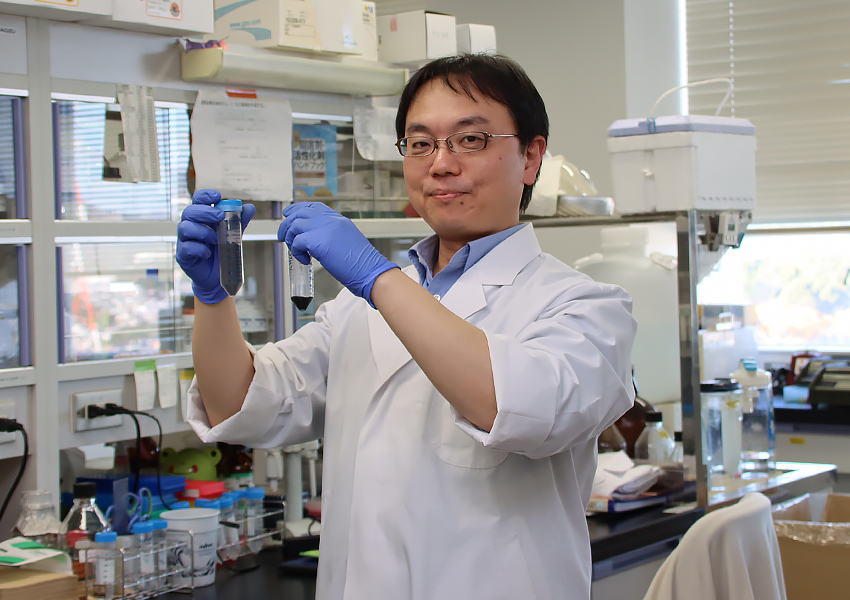
Dr. Yoshiyuki Kawamoto holds a PhD in Medicine from the Nagoya University Graduate School of Medicine. After completing his postdoctoral research at Tokyo University of Science, he joined Chubu University in 2005. He is an associate professor in the Department of Biomedical Sciences within the College of Life and Health Sciences.
He was born in Aichi Prefecture, Japan. Dr. Kawamoto enjoys meditating in saunas and relaxing at cafes. He has been researching squid ink, but has always loved squid dishes in general. His recommended squid dish is a seafood hot pot with squid and scallops.
Close up with Dr. Kawamoto!
Research Introduction
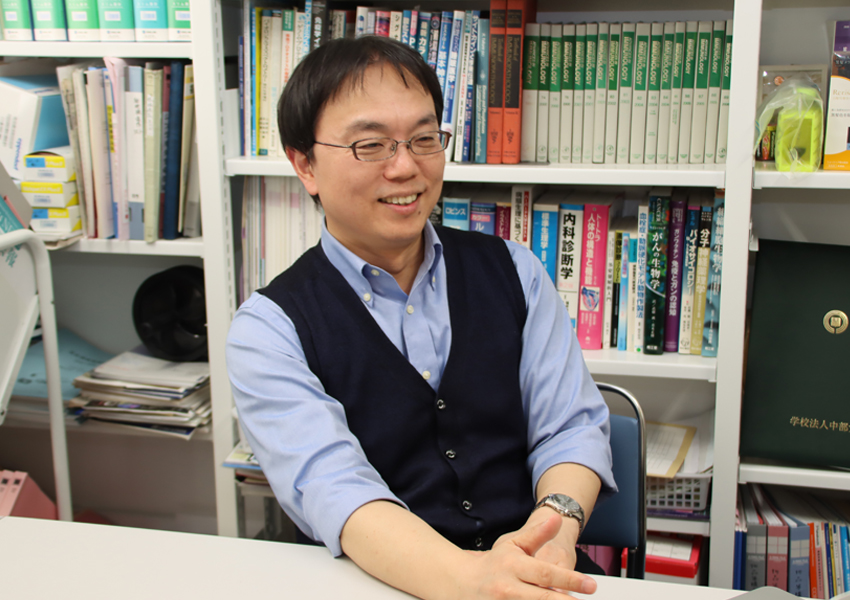
I am sure you are all familiar with the term “melanin.” For example, the skin turns dark when it gets sunburned because the surface of the skin produces a lot of melanin. This is because melanin acts like a natural parasol to prevent genetic damage caused by harmful ultraviolet rays in the sun. I am conducting research on melanin because I believe that it may have an unknown beneficial function. Specifically, I have found that melanin suppresses the activation of immune cells called mast cells, which play an important role in allergic reactions, and that it strongly suppresses the abnormal growth of cancer cells. Other interesting functions of melanin have been revealed one after another, such as its ability to suppress the differentiation of adipocyte. Melanin can be chemically synthesized in the laboratory and used for research, but in fact, squid ink also contains a large amount of natural melanin, so we also use squid ink in our experiments.
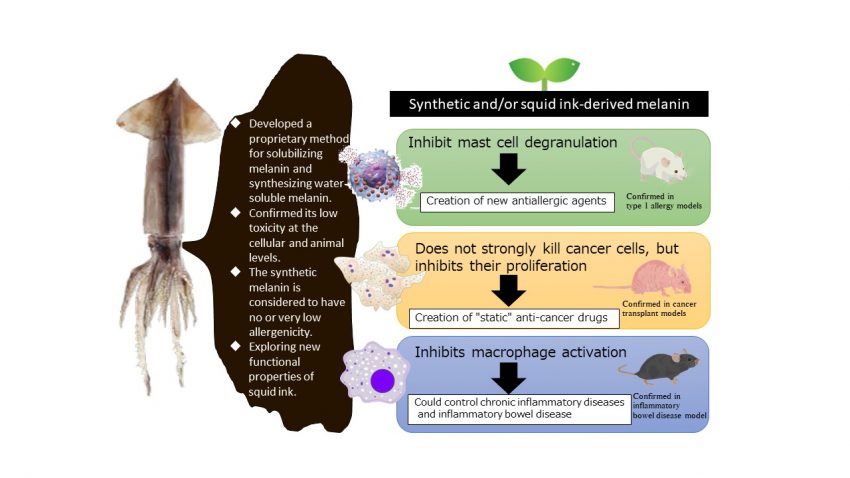
How did you start your research?
I have been interested in ‘life and death’ and ‘diseases’ such as cancer since I was a child. Doctors treat diseases, but I was interested in maintaining health and preventing diseases (especially cancer and allergies), so I decided to become a basic researcher. One day, while conducting research on allergy prevention using mice, I noticed that special black mice with high melanin content in their skin had weaker allergic reactions. Mice also sneeze and rub their noses when given allergens, but these black mice sneezed less frequently than normal mice. This prompted us to investigate the allergy suppression effect of melanin. Normally, after melanin is produced in skin cells, it does not penetrate deep into the body, but is eventually expelled from the body. Specifically, melanin produced by melanocytes, which are melanin-producing cells, is passed on to cells called keratinocytes and gradually pushed up to the skin surface. For this reason, there has been little research on the effects of administering melanin itself to cells or individuals to see its impact and effects. In addition, melanin is insoluble in water. After much trial and error, we succeeded in chemically synthesizing artificial melanin that dissolves quickly in water, and when we conducted experiments using cultured cells, we were able to confirm a phenomenon in which mast cell activation and cancer cell growth were strongly suppressed.
“Discovering Allergy Suppression Effects in Squid Ink,” released in 2019.
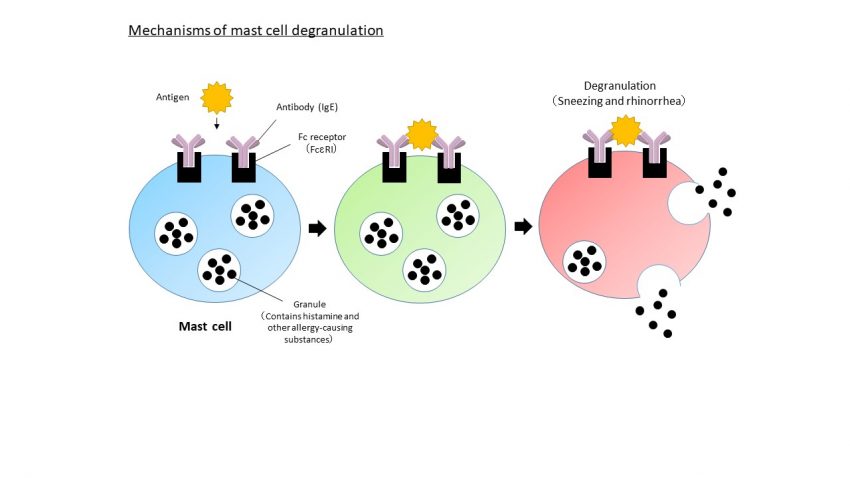
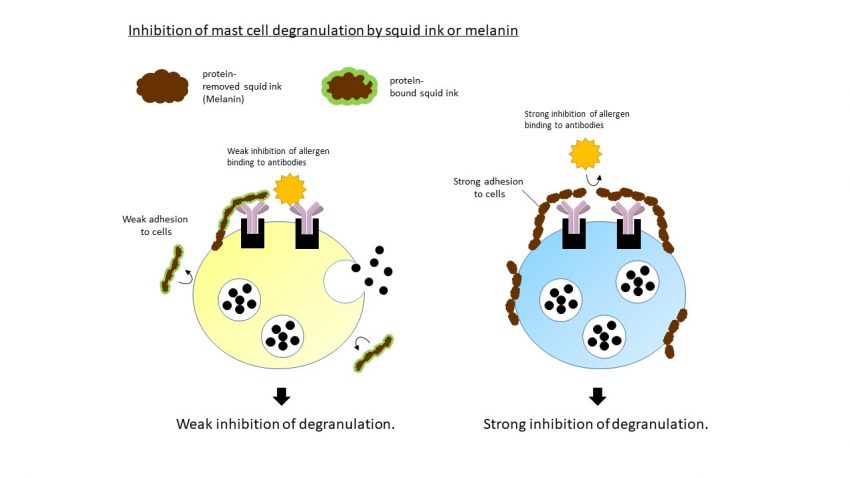
Allergic symptoms such as hay fever are caused by an overreaction of mast cells, which are abundant in the mucous membranes, to allergens. In the case of hay fever, antibodies that react with pollen adhere to the surface of mast cells after years of exposure to pollen. In this state, no allergic reaction occurs yet, but later, when pollen invades and these antibodies catch pollen, the cells are activated and release allergic substances such as histamine. This stimulation causes sneezing and runny nose. Our research group found that melanin acts as a covering for the mast cells that catch the antibodies, preventing allergens such as pollen from binding. After the release of this research, some people expressed their hope that the drug could be used immediately for treatment, but there are still many problems to be solved, such as the fact that it has not yet been verified on the human level and that it would be difficult to apply it to people with squid allergies because squid smelt itself is an allergen.
Student Life

When I was a student, I wanted to experience various fields, so I did a lot of part-time jobs. For example, I worked part-time at the Nagoya Grand Sumo Tournament, and it was interesting to see the behind-the-scenes work that goes into creating a venue for the event. I also had a hard training experience at a fast food restaurant that paid 680 yen per hour, but fortunately I was blessed with good friends and was able to continue working there for a long time. In college, I was a member of a mixed choir club and immersed myself in it. I started with a casual feeling, but I was surprised to find that the club was organized like a company. It was not just about practicing to improve singing ability, but everything was run by the students, including planning and management meetings, budget deliberations, elections of conductors and leaders of each part, training camps, and so on. They transcended their positions as senior and junior members, listening to and being listened to about their problems. Sometimes we were too excited about each other and later regretted it. It was a fulfilling time with many emotions – joy, anger, sorrow, and happiness.
Message
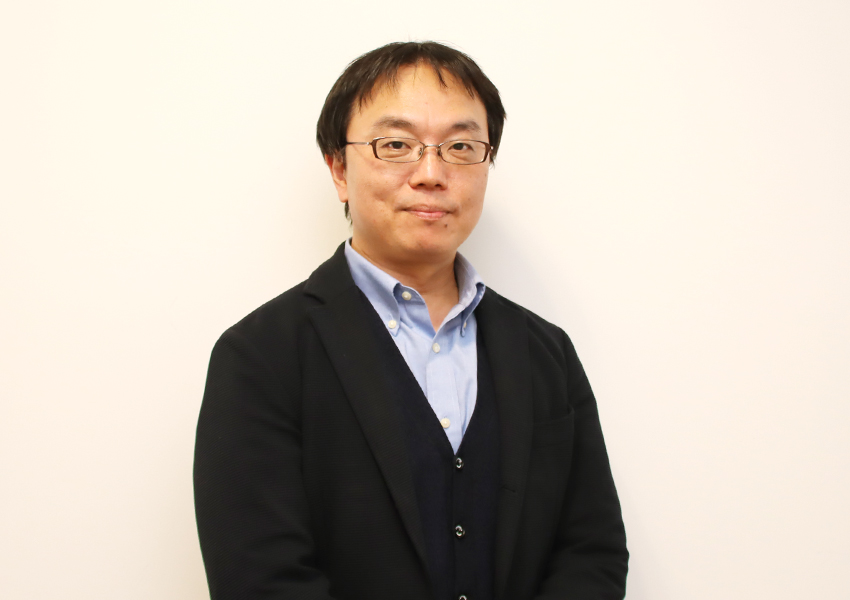
Your student years are a precious time when you can develop your thinking ability and culture in a wide range of areas. The knowledge you gain, the way you think and reflect on yourself and others, the actions you take, and the experiences you have will help you face future challenges calmly and confidently. The student years tend to pass in the blink of an eye. I would like to encourage you to engage in intellectual activities with great enthusiasm, as it will help you grow and expand your capacity as a person. Please make steady progress toward becoming a person who can be trusted and relied upon.

